
The Religious Topography of Yogyakarta (1/2)
Im ersten Teil seines Beitrags beschäftigt sich Rüdiger Lohlker mit der Verbindung von religiösen Praktiken und räumlichen Gegebenheiten in der Region Yogyakarta. Die Tempel Prambanan und Borobudur stehen dabei im Mittelpunkt: Während Prambanan als Zentrum der Shiva-Verehrung gilt, ist Borobudur ein bedeutender buddhistischer Pilgerort. Beide Stätten werden zudem von indonesischen Muslimen als Orte spiritueller Kraft wahrgenommen. Über diese Tempelanlagen hinaus bildet die kosmologische Achse Yogyakartas eine zentrale spirituelle Struktur, die in das Selbstverständnis des Sultans und islamische Traditionen eingebettet ist.
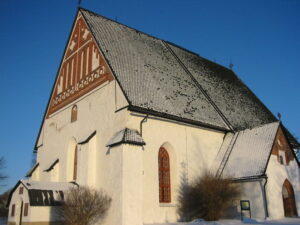
Die Gemeinsame Feststellung von Porvoo: Eine Transformation der besonderen Art (3/3)
Der dritte Teil des Blogbeitrags von Vera M. Waschbüsch diskutiert die PGF als mögliche Antwort auf aktuelle ökumenische Herausforderungen. Dabei wird besonders das Verständnis des Bischofsamts und der historischen Sukzession zwischen anglikanischen und lutherischen Kirchen analysiert, das sowohl theologische als auch politische Dimensionen hat. Trotz der erreichten Kirchengemeinschaft bleibt die in Joh 17,21f formulierte Einheit ein fernes Ziel, da grundlegende Unterschiede im Amts- und Kirchenverständnis weiterhin bestehen.

Die Gemeinsame Feststellung von Porvoo: Eine Transformation der besonderen Art (2/3)
Der zweite Teil des Blogbeitrags von Vera M. Waschbüsch untersucht die Rezeption der Porvoo-Gemeinsamen Feststellung im deutschsprachigen Raum. Er zeigt, dass die PGF dort kaum Beachtung findet, was unter anderem an theologischen Differenzen, insbesondere zur Frauenordination und dem Bischofsamt, liegt. Zudem wird deutlich, dass auch ökumenische Institute nur vereinzelt zur PGF Stellung nehmen, was die Wahrnehmung und Relevanz der Erklärung weiter einschränkt.
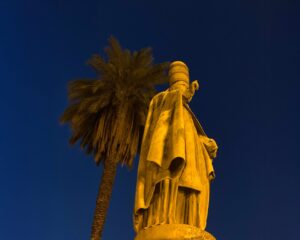
Überlegungen zu Hegels „Der Geist des Judentums“
Viel wird über das Judentum und seine Rolle in der Gesellschaft diskutiert. Auch die großen Philosophen haben sich zu ihrer Zeit mit dem Judentum beschäftigt. In ihrem Artikel setzt sich Elin Samson mit Georg Wilhelm Friedrich Hegels Fragment über den Geist des Judentums auseinander und blickt dabei kritisch auf einige Äußerungen über das vermeintliche Wesen des Judentums.
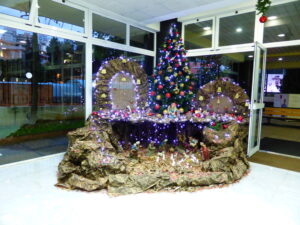
Unsichere Aussichten und Angst unter den Christen Syriens
Nach dem Sturz des Assad-Regimes Anfang Dezember 2024 ist die Zukunft Syriens weiterhin ungewiss. Anna Hager widmet sich in ihrem Beitrag der schwierigen Situation der christlichen Minderheiten im Land, die nach einer wechselvollen Geschichte heute besonders unsicher in die Zukunft blicken.
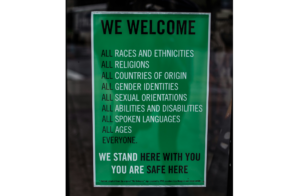
Workshop Zeitdiagnostik religiöser Vielfalt in Wien und Österreich
Wie steht es derzeit um die religiöse Vielfalt in Wien und Österreich und welche Lehren für die Praxis lassen sich aus den aktuellen soziologischen Befunden ziehen? Der Workshop „Zeitdiagnostik religiöser Vielfalt in Wien und Österreich“, wird diesen und weiteren Fragen am 13. und 14. September 2024 im Sitzungssaal des Dekanats der KTF nachgehen. Der Organisator der Veranstaltung, Karsten Lehmann, gibt in seinem Beitrag einen Überblick über die Hintergründe und das Programm der Veranstaltung.

Das Leben Jesu, kritikkritisch bearbeitet von Friedell.Teil 2
Im zweiten Teil seines Beitrags geht Andreas Burri mit Egon Friedell der stets aktuellen Frage nach, was es eigentlich heißt, Kulturgeschichte zu betreiben.

Das Leben Jesu, kritikkritisch bearbeitet von Friedell. Teil 1
Egon Friedell (1878–1938) zählt zu den bekanntesten Kulturhistorikern des frühen 20. Jahrhunderts. Andreas Burri führt im ersten Teil seines Beitrags in dessen Auseinandersetzung mit der protestantischen Leben-Jesu-Forschung ein.
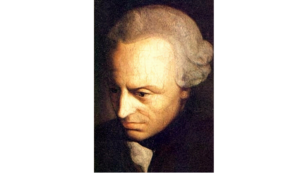
Immanuel Kant und die protestantische Theologie. Eine Erinnerung anlässlich seines 300. Geburtstags
Immanuel Kant hat wie kaum ein anderer Denker ein modernes Gottesverständnis geprägt. Anlässlich des 300. Geburtstags des Königsberger Philosophen erinnert Christian Danz in seinem Beitrag an die grundlegende Bedeutung des kantschen Werks für die protestantische Theologie.
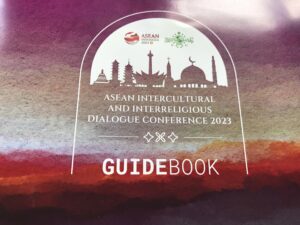
The Wind Blows from Indonesia: The Emerging Global Role of Indonesian Islam
Taking the ASEAN Intercultural and Interreligious Dialogue Conference 2023 as his starting point, RaT member Rüdiger Lohlker sheds light on the organization Nahdlatul Ulama. With its millions of members, the Indonesian organisation is, under the heading of „Humanitarian Islam“, engaged in combatting Islamic extremism in South East Asia and beyond.